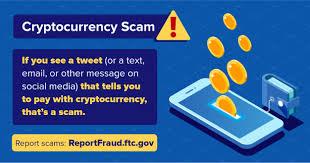This is a guest post from Susannah Shattuck, Content Marketing Manager at Prezi (@Prezi), who help speakers create presentations that people will remember. To hear top tips from more industry professionals, head over to the EventTribe forum.
Organising a conference is no small feat.
Between arranging for conference space, managing relationships with corporate sponsors, and making sure you sell enough tickets, there are a lot of things to juggle before the big event.
One of the most important parts of the planning process is the securing of speakers to participate in your conference. With all of the other logistics that you need to manage, however, it can be easy to take a more laissez-faire approach to your speakers’ presentations once you’ve nailed down the fact that they’re actually going to happen.
While most conference speakers appreciate creative freedom and a more hands-off approach from organisers when it comes to planning out their content, they do appreciate it when the conference planner checks in regularly and are more engaged before the event.
Nobody wants to feel left out in the cold or uncertain of what might happen on stage.
Additionally, a little bit of up-front investment can go a long way when it comes to great conference content. Your speakers are putting a lot of energy into creating presentations that will engage and entertain your attendees.
When you put in the same amount of energy to make sure that everyone is on the same page and everything runs smoothly, both the presenters and the audience will have a much better time at your event.
1. Curate your event with the audience in mind
Before even reaching out to any speakers to participate in your event, you need to make sure you have a clear idea of what your target audience would be interested in hearing.
Doing this will make it much easier for you to determine who you should ask to be a speaker at your conference. Also, if you can articulate to the people you’re asking to speak who the audience will be and what they’re interested in hearing, you’ll have a much easier time convincing speakers to participate.
Instead of just going after “brand name” speakers, you should look for people who would be a good fit for your event and your audience. This will keep your audience happy and, in all likelihood, your speaker fees down.
2. Provide your speakers with a handbook
As soon as you’ve lined up a full roster of speakers, you need to start communicating to them about what you need from them. The easiest way to do this is to put together a speaker handbook that you can distribute to everyone well in advance of the event.
Some things to include in the handbook include an executive summary of the conference, with demographic information about the target audience; a description of the venue that clearly states any technical requirements or limitations that the speakers might face; a list of speaker bios and general presentation topics (if the exact titles aren’t set yet), so that each speaker can see who else is attending the event; and any other travel or hotel information that they might want to know well in advance.
3. Check in early and often
One of the worst things you can do as a conference organiser is to wait until the last minute to make sure that your speakers have everything they need to be successful.
The chances are high that your speakers—if they’re interesting and smart enough to be giving a talk at your conference—are busy people. They may be speaking at multiple events and managing high-level careers on top of that. You shouldn’t expect them to think about the details; that’s your job, not theirs.
A couple of months in advance of the conference, reach out to them to make sure that they’re all set with their travel and lodging—the last thing you want is for your top speaker to stay halfway across town because all of the hotel rooms near the venue filled up.
A couple of weeks before the event, check in with each of your speakers about their presentations. Make sure that they all have a distinct topic or angle to their talk. There’s nothing worse for a speaker than realising that the person presenting before you is stealing all of your main points!
4. Don’t micromanage the content
On the flip side of the last point, you also want to give your speakers enough room to develop their own content.
Feel free to give feedback on presentation titles and abstracts, but don’t play creative director when it comes to their deck. The chances are that your speakers have given some version of their presentation before. Trust them to deliver their message the right way.
5. Set expectations
It’s a good idea to let your speakers know what to expect in terms of audience size a couple of weeks before the event. Have you sold out of all of your tickets, and are you expecting each speaking slot to reach standing-room-only capacity? Or maybe you’ve booked a more intimate venue, and each speaker will face a more intimate crowd of a couple dozen attendees.
Whatever the situation, giving your speakers a heads-up will benefit everybody in the long run. They won’t come into the situation expecting something different, and consequently, they are much less likely to be overwhelmed or disappointed. They will also be able to prepare a presentation that is appropriate for the size of the audience.
This will also make your life as an organiser much easier—you won’t have to field any awkward conversations with unhappy presenters.
6. Build transition time into the schedule
This point is something that both your speakers and your audience will appreciate if you do it well. Nobody likes going to a conference that’s so jam-packed with panels, keynotes, and networking sessions that there isn’t even time to pee, let alone grab a bottle of water or a bite to eat.
When you’re setting up the schedule of speaking events, make sure you build in enough time for everybody attending the conference to take care of any needs in between sessions. Also, take into account the fact that it will take time—ten to fifteen minutes, depending on the size of the venue—for one audience to clear out of a space and another one to take its place.
If you load your schedule with too many back-to-back events, you’re much more likely to get off track in terms of timing. The speakers at the end of the day who end up having to squeeze their talks into a shortened time slot or who end up speaking to an empty room because all of the audience had to leave to catch planes and trains will not be pleased. Avoid this situation by leaving plenty of time in your schedule for transitions between talks.
7. House your speakers near the venue
This goes back to point number three—do as much as you can to minimise the logistics that your speakers have to manage. On the day of the event, you don’t want them having to worry about how to get from their hotel all the way across town to the venue in time; it’s much more important that they’re able to spend that energy preparing to go on stage.
If your conference is in a hotel, the ideal situation would be to provide your speakers with rooms in that hotel. If not, then take the time—and spend the money—to make sure that they’re set up in a location that’s easily accessible from the venue.
8. Provide on-site tech support
When it comes to presentations, all it takes is one small technical glitch to ruin the show. Whether the clicker stops working, or the projector light fails, when you’re up on stage and something goes wrong, it can feel like a catastrophic experience. Great speakers know how to deal with last-minute tech snafus, but even the best presenters can find them distracting and unnerving.
In order to avoid any potential issues, make sure that you have technical support on hand throughout your conference to help your speakers get set up correctly.
Before the event begins, do a dry run to make sure that all of your equipment works properly, and ask the presenters to come a bit early, prepared with their presentation media.
Whether they’re presenting with a Prezi on a USB stick or a deck of slides that they need to download from an online file, make sure you have the proper set-up to handle their needs.
It’s much better to find out that you need some additional equipment several hours before the talk begins, rather than several minutes before.
9. Share the love on social media
These days, so much of the networking and idea sharing that makes conferences great is taking place online. Your attendees are going to be tweeting about your event regardless of whether or not you’re a part of the conversation, so you might as well make the online discussion work to your advantage.
Provide your speakers and audience with a hashtag for the event in advance. Experienced speakers will work that hashtag into their presentations, which in turn will encourage audience engagement online.
You should also make copious mentions of your speakers’ Twitter handles in advance of their talks—they will appreciate the recognition, and your audience will be more likely to engage with them afterwards if they have their social contact info.
Isn’t that what great conferences are all about, after all?
10. Follow-up with feedback
Phew—your event is over, and it was a great success! After all of the hard work that you put into planning such an event, it might be tempting to throw your computer out the window and take a three-week vacation to some tropical island.
Before you do that, though, make sure to send notes to all of your speakers letting them know that the event was a success and thanking them for their participation.
If there’s anything in particular that they did, or that you overheard the audience say, that you want to draw their attention to, feel free. Whether that means praising them for their excellent Q&A session or letting them know that the audience would love to see their deck posted online, feedback is always appreciated.
Plus, keeping an open line of communication with your speakers after the event will help you maintain relationships that might come in handy next time you decide to organise a conference.





